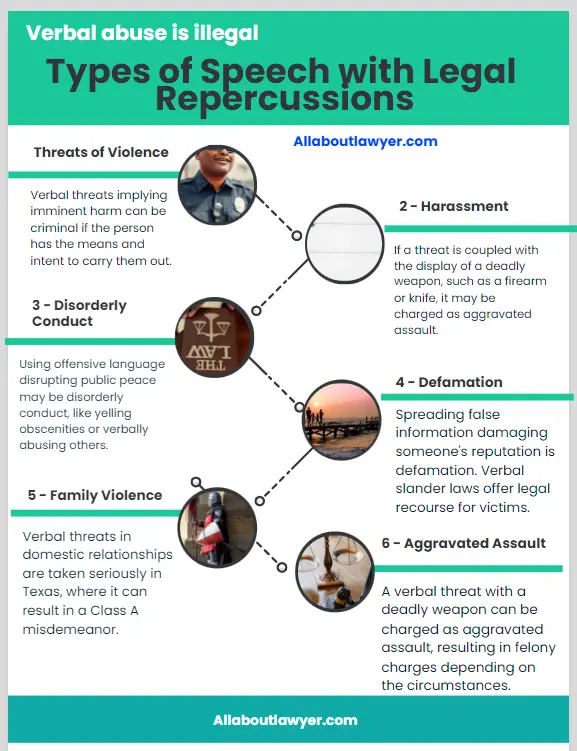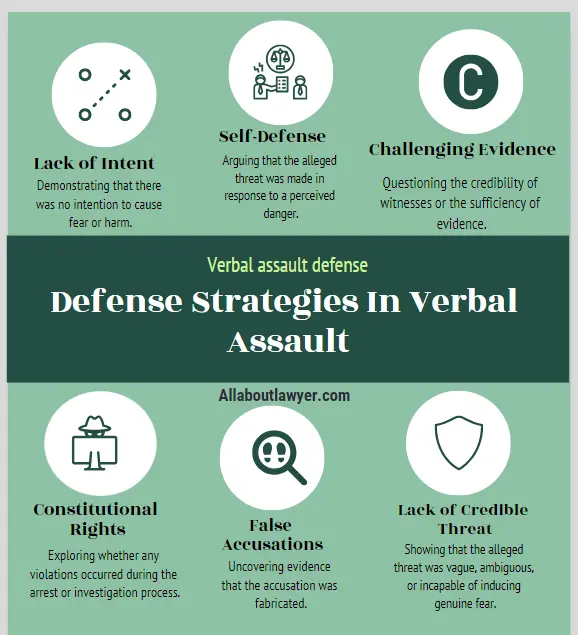Is Verbal Assault Actually a Crime? Legal Guide to Verbal Abuse Laws
Have you ever found yourself on the receiving end of hurtful words, feeling shaken and unsure of where to turn? This thorough guide explores the legal boundaries of verbal assault and what recourse you might have if you’ve been subjected to verbal abuse and Is Verbal Assault Actually a Crime? Whether you’re dealing with constant insults, threats, or harassment, understanding your rights is crucial.
Table of Contents
Understanding Verbal Assault
Verbal assault, unlike physical assault, is not universally recognized as a crime. Most jurisdictions don’t consider standalone words as criminal offenses. However, the law often focuses on the intent behind the words and the context in which they’re used. It’s important to understand the distinction between verbal assault and harassment, as criminal charges for verbal abuse usually hinge on these factors.
In some jurisdictions, such as Texas, verbal assault is legally referred to as “assault by threat.” This offense involves using threatening language or engaging in verbal conduct that causes the victim to fear imminent bodily harm or physical contact. The key elements often include the threat of bodily injury, intent to cause fear, and the victim’s reasonable belief in the threat’s credibility.
Types of Speech with Legal Repercussions
While not all verbal abuse is criminal, certain types of language can cross legal lines:
1. Threats of Violence:
Verbal threats that create a sense of imminent harm can be criminal. If someone threatens you with physical harm and you believe they have the means and intent to carry it out, this could be considered a criminal threat.
2. Harassment:
A repeated course of abusive or threatening language can be considered harassment. This could include offensive calls, texts, or social media posts that create a hostile environment. Verbal harassment laws vary by jurisdiction, but persistent, unwanted communication that causes distress may be grounds for legal action.
3. Disorderly Conduct:

Using offensive language that disrupts public peace and order might be classified as disorderly conduct. This could include yelling obscenities in public or engaging in verbally abusive behavior that disturbs others.
4. Defamation:
Spreading false information that damages someone’s reputation can be defamation. Verbal slander laws provide legal recourse for those who have suffered harm due to false statements made about them.
5. Family Violence:
In some jurisdictions, verbal threats within the context of domestic relationships may be treated more severely. For instance, in Texas, verbal assault against a family or household member could be charged as a Class A misdemeanor, carrying penalties of up to one year in county jail and/or a fine of up to $4,000.
6. Aggravated Assault:
If a verbal threat is coupled with the display of a deadly weapon, such as a firearm or knife, it may be charged as aggravated assault. This is a much more serious offense and can result in felony charges, ranging from second-degree to first-degree felonies depending on the circumstances.
Elements Prosecutors Must Prove In Verbal Assault
For a conviction of assault by threat, prosecutors typically need to prove several key elements beyond a reasonable doubt:
1. The defendant made a threat of imminent bodily injury.
2. The defendant intended to cause fear of imminent harm.
3. The victim reasonably believed the threat was credible.
4. The threat was communicated verbally or in writing.
5. The victim did not consent to or provoke the threat.
6. The defendant’s identity as the person who made the threat.
Seeking Help When You Affected By Verbal Assault
If you’re experiencing verbal abuse or threats, consider the following steps:
1. Reporting Threats:
If you feel threatened for your safety, report it to the police immediately. Filing a police report for verbal threats creates an official record of the incident and can initiate an emergency response if necessary.
2. Documenting Abuse:
Keep a detailed record of dates, times, and specifics of the verbal abuse. This evidence gathering can be crucial if you decide to pursue legal action or need to build a case for verbal assault.
3. Legal Consultation:
Consider consulting with an attorney to understand your options and potential legal recourse. A lawyer experienced in harassment cases can provide valuable guidance on how to proceed, including whether to file a harassment complaint or pursue other legal avenues.
Understanding Your Rights
While there may not be specific laws against mean words, you have the right to feel safe and respected. If verbal abuse is impacting your well-being, don’t hesitate to seek support and explore your legal options.
Potential Legal Consequences Of Verbal Assault
The legal ramifications of verbal assault can vary significantly depending on the jurisdiction and the specifics of the case. In some areas, like Texas, a basic verbal assault might be classified as a Class C misdemeanor, punishable by a fine of up to $500. However, more severe cases or those involving family violence can lead to higher-level misdemeanors or even felonies, potentially resulting in jail time.
More importantly, having such a conviction on your criminal record can lead to long-term consequences. These may include:
– Difficulty obtaining employment, especially in caretaking positions
– Loss of professional licenses
– Challenges in securing housing
– Ineligibility for certain educational programs
Defense Strategies In Verbal Assault
If you’re facing charges related to verbal assault, several defense strategies might be applicable:

1. Lack of Intent: Demonstrating that there was no intention to cause fear or harm.
2. Self-Defense: Arguing that the alleged threat was made in response to a perceived danger.
3. Challenging Evidence: Questioning the credibility of witnesses or the sufficiency of evidence.
4. Constitutional Rights: Exploring whether any violations occurred during the arrest or investigation process.
5. False Accusations: Uncovering evidence that the accusation was fabricated.
6. Lack of Credible Threat: Showing that the alleged threat was vague, ambiguous, or incapable of inducing genuine fear.
7. Plea Bargaining: Negotiating with prosecutors for reduced charges or penalties.
Conclusion
Verbal abuse can be deeply hurtful, even if it doesn’t always constitute a crime. Legal boundaries and potential avenues for addressing it can empower you to take action and protect yourself. Remember, if you feel threatened or unsafe, prioritize your safety and contact the authorities.
Disclaimer: This guide provides general information and does not constitute legal advice. For specific legal guidance regarding a situation of verbal abuse, consult with a lawyer in your jurisdiction.
Related Articles For You:
How To Hire Best Domestic Assault Lawyer Toronto?
FQAs
Q: Is someone yelling at me considered verbal assault?
A: Not necessarily. Yelling alone might not be criminal, but it could be disorderly conduct if it disrupts the peace.
Q: Can I press charges for someone calling me names?
A: Generally, name-calling, while unpleasant, isn’t criminal. However, it could be part of a harassment case if it’s persistent and creates a hostile environment.
Q: What if someone threatens me with violence?
A: Take threats of violence seriously. Report them to the police immediately.
Q: How can I protect myself from verbal abuse?
A: Document the abuse, including dates, times, and details. Consider consulting a lawyer about potential legal options, including filing a harassment complaint or seeking a restraining order.
Q: Is there a law against using mean words?
A: While there’s no specific law against mean words, persistent verbal abuse could fall under harassment laws depending on the circumstances.
Q: Can verbal assault lead to a criminal record?
A: Yes, in some jurisdictions, a conviction for verbal assault can result in a criminal record, which may have long-term consequences on various aspects of your life.
Remember, while not all hurtful words are crimes, you have the right to feel safe and respected. If verbal abuse is impacting your life, don’t hesitate to seek support and explore your legal options.
About the Author

Sarah Klein, JD, is a former criminal defense attorney with hands-on experience in cases involving DUIs, petty theft, assault, and false accusations. Through All About Lawyer, she now helps readers understand their legal rights, the criminal justice process, and how to protect themselves when facing charges.
Read more about Sarah
About the Author

Sarah Klein, JD, is a licensed attorney and legal content strategist with over 12 years of experience across civil, criminal, family, and regulatory law. At All About Lawyer, she covers a wide range of legal topics — from high-profile lawsuits and courtroom stories to state traffic laws and everyday legal questions — all with a focus on accuracy, clarity, and public understanding.
Her writing blends real legal insight with plain-English explanations, helping readers stay informed and legally aware.
Read more about Sarah
